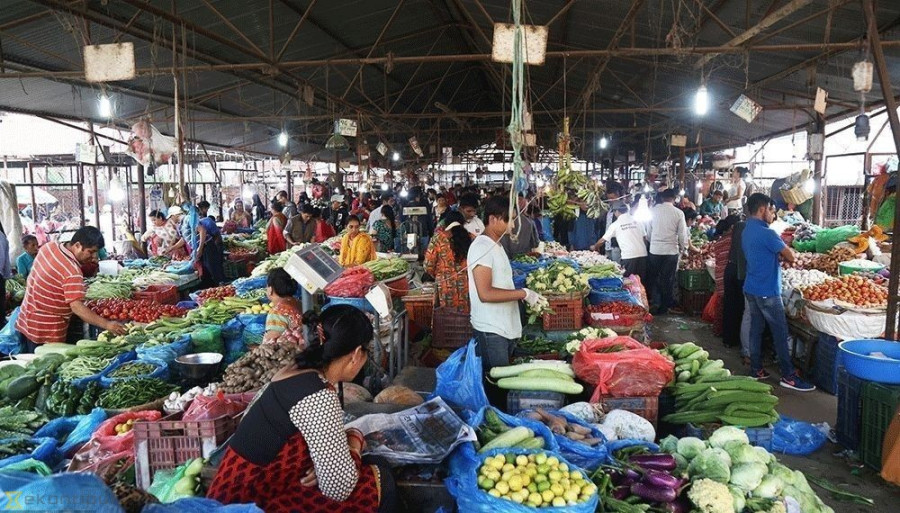Money
Consumer protection team swoops on vegetable markets
Three traders fined Rs5,000 each for not possessing sale and purchase bills.
Krishana Prasain
A government consumer protection team swooped on the Manahara and Balaju vegetable markets on Monday and fined three traders Rs5,000 each for not possessing sale and purchase bills.
Vegetable traders are required to keep the bills for products purchased from farmers and the bills of sale for products sold to consumers. The government enforced the mandatory system last year to monitor the price difference in a bid to eliminate middlemen in the vegetable business.
Yogendra Gauchan, director general of the Department of Commerce, Supplies and Consumer Protection Management, said traders had been raising vegetable prices arbitrarily despite the provision, and that middlemen were still on the scene.
Traders say floods and landslides in key vegetable producing areas affected production and sent prices soaring, but consumer rights activists maintain that middlemen were hiking up prices on the pretext of natural disasters.
The average price of vegetables in the last week of July jumped up to 68 percent year-on-year, according to the daily price list posted on the website of the Kalimati vegetable market.
On Monday, a government consumer protection team found that traders were selling vegetables from one shop at the Balkhu vegetable wholesale market to another shop by adding a 30 percent markup.
The surprise market inspection was carried out by the Department of Commerce, Supplies and Consumer Protection Management in different markets following complaints that unscrupulous traders have been increasing vegetable prices arbitrarily.
The department conducted a market inspection in Baneshwor and fined seven traders.
The department has been levying fines of Rs5,000 to Rs20,000 against traders involved in overcharging and cheating customers.
The government team was prevented from conducting a market inspection at the Balaju vegetable market on Monday by some traders. “They started protesting against our team for conducting the inspection at Balaju,” said Gauchan. The government team returned without taking any action.
Madhav Timilsina, president of the Consumer Right Investigation Forum, said that vegetable
prices had increased threefold due to slowed market monitoring. “When a product leaves the farmer who grew it and reaches the consumer, the price has increased by 25 percent.”
The number of middlemen has increased in the vegetable market due to ineffective inspection, he said. “The government only has a provision to levy a fine of Rs5,000 against
traders caught overcharging or cheating consumers. The fine is too small, and as a result, middlemen are raking in huge profits because they are not deterred by the threat of penalty,” he said.
Gauchan said that prices had decreased slightly after an inspection was carried out on July 19. “Vegetable traders at the Kalimati market have now started to keep sales and purchase bills,” said Gauchan. “As we have limited manpower, we cannot conduct market inspections on a regular basis.”
A market inspection on July 19 found that vegetable traders had hiked prices by Rs40 per
kg. “After making it mandatory for traders to keep sales and purchase bills, we have decided to require them to obtain permanent account number (PAN),” he said. “As there are chances of submitting fake bills, the department plans to conduct inspections of the bills too.”
The department said it would be conducting inspections of the livestock market soon. The price of mutton has increased to Rs1,300 per kg and the price of chicken has jumped to Rs400 per kg. The department suspects involvement of middlemen for the sudden hike in prices.




 10.12°C Kathmandu
10.12°C Kathmandu













